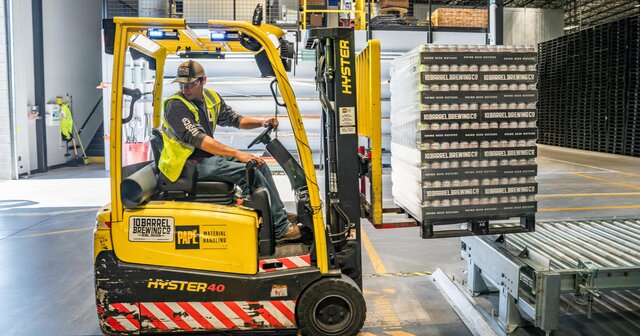
Michigan legislators are considering a bill to spend $3 billion on selective business subsidies over the next ten years. Corporate welfare has been a priority for the state’s Democratic majority Legislature and governor; more than any other Legislature in recent memory.
This bill would take $250 million a year in corporate income taxes and plug it into a program that allows lawmakers to subsidize whoever they want with however much money they want. It would also earmark another $50 million a year to developers and local government projects.
There’s something odd about using a tax to take money from all businesses to hand it out to select businesses. Taxes are supposed to fund the government, not a favored few private companies.
Lawmakers have approved $4.4 billion in business subsidies so far this term. If this legislation is approved, the $7.4 billion in business subsidies will be the most the Mackinac Center has recorded in our business subsidy scorecard, which goes back to 2001.
The next highest amount was approved in 2007-08, when legislators authorized billions in subsidies through the Michigan Economic Growth Authority.
Michigan’s economy has been falling behind. The state added just 54,500 jobs since February 2020, a 1.0% increase that is far less than the 3.9% national average.
Business subsidies let lawmakers say that jobs are coming, even in the face of broader economic stagnation. “Since I took office, we have secured 38,000 new auto jobs,” Gov. Gretchen Whitmer claimed, for instance. There is a difference between announcements and performance, however, and Michigan residents should care about performance and be skeptical of announcements. Michigan has lost 3,500 auto and auto parts manufacturing jobs during the governor’s term, according to the Bureau of Labor Statistics, while the rest of the nation has added 61,100 auto jobs. Political dealmaking allows elected officials to take credit for creating jobs even when the state is losing jobs.
Perhaps legislators see that Michigan’s economy has been falling behind and feel the need to make more subsidy deals, which shows they’re trying something. Except such dealmaking is ineffective at improving the state economy.
Economists have used sophisticated methods to isolate the economic effects of selective subsidy programs. Sometimes, they find positive effects, but most of the time, they find negative ones. They have never found large effects. It is bluster when lawmakers claim that their deals will be “transformational” and have “generational impact.”
Dealmaking has real costs to taxpayers. Michigan can do other things with $7.4 billion than give it to some private businesses. It would pay off a huge chunk of the school pension system, fix some roads, or even lower taxes on everyone else.
Taxing everyone to give to a few select businesses has been a priority for Michigan’s elected officials, and the bill under consideration would set a new record. It’s a waste of money on a strategy that is ineffective at improving the state economy.
Permission to reprint this blog post in whole or in part is hereby granted, provided that the author (or authors) and the Mackinac Center for Public Policy are properly cited.
Get insightful commentary and the most reliable research on Michigan issues sent straight to your inbox.

The Mackinac Center for Public Policy is a nonprofit research and educational institute that advances the principles of free markets and limited government. Through our research and education programs, we challenge government overreach and advocate for a free-market approach to public policy that frees people to realize their potential and dreams.
Please consider contributing to our work to advance a freer and more prosperous state.

Donate | About | Blog | Pressroom | Publications | Careers | Site Map | Email Signup | Contact